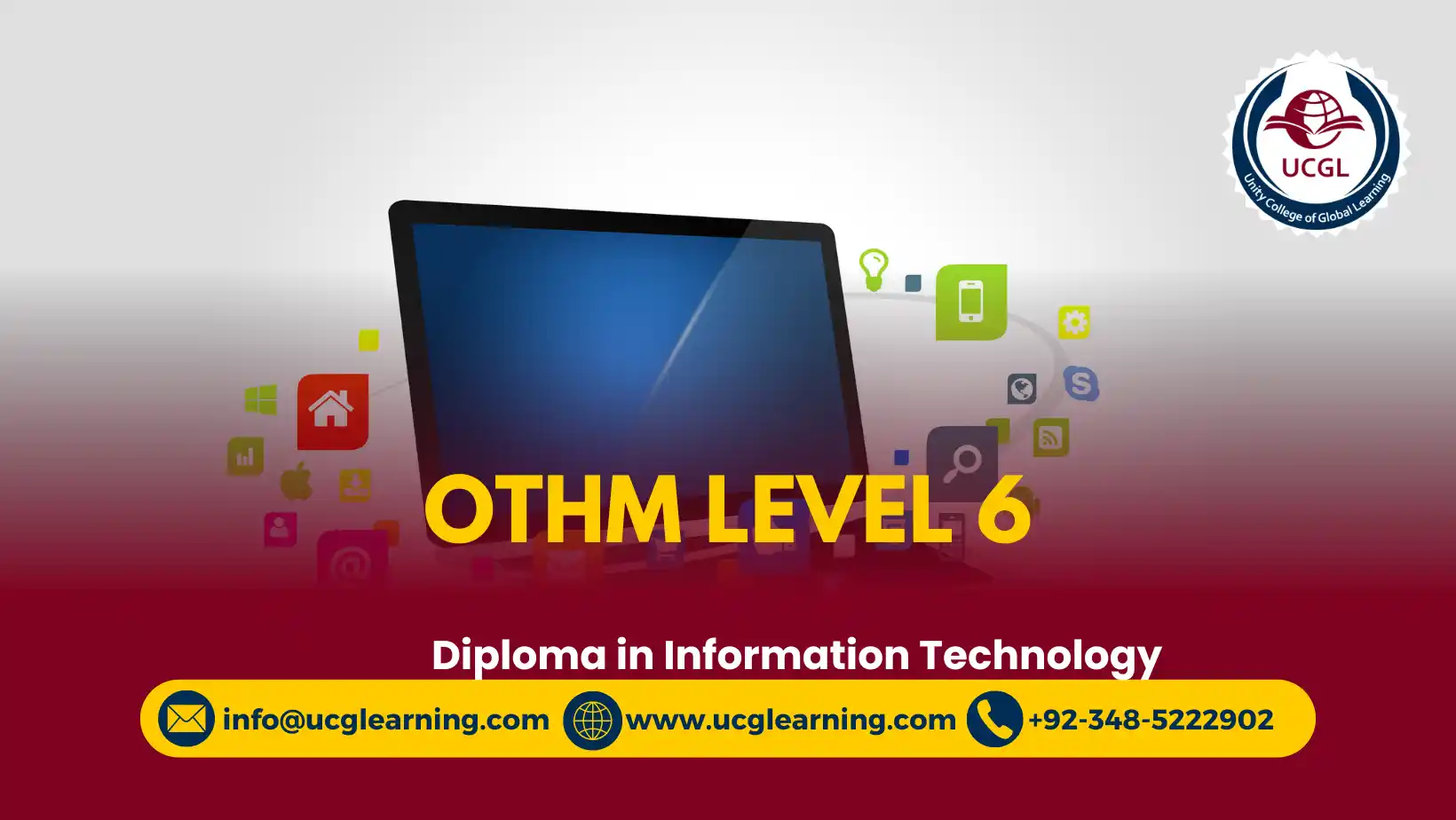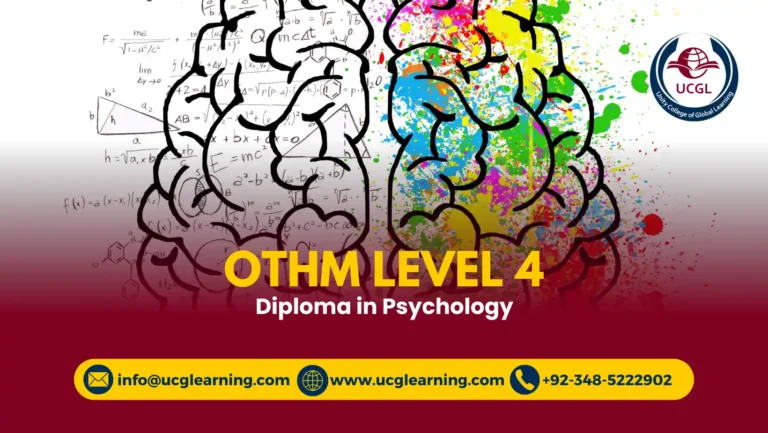OTHM Level 6 Diploma in Information Technology
The Level 6 Diploma in Information Technology is an extensive program that covers a broad spectrum of IT topics. It delves into the latest technological advancements and equips students with the skills needed to design, implement, and manage IT systems effectively. The curriculum combines theoretical knowledge with practical applications, ensuring that graduates are well-versed in both aspects of the field.
Course Introduction
In the rapidly evolving landscape of technology, staying ahead of the curve is essential. The Level 6 Diploma in Information Technology (IT) offers a comprehensive and advanced understanding of IT principles and practices, preparing students for successful careers in the ever-expanding tech industry. This diploma is designed for those seeking to deepen their technical knowledge and enhance their professional skills to meet the demands of modern businesses and organizations.
Course Benefits
- Enhanced Knowledge and Skills: Gain a deep understanding of IT concepts and practices, from software development to network management.
- Career Advancement: Improve your employability and career prospects in the competitive IT industry.
- Practical Experience: Engage in hands-on projects and real-world scenarios to apply your knowledge effectively.
- Industry-Relevant Curriculum: Stay updated with the latest trends and technologies in the IT field.
- Global Recognition: Earn a qualification that is recognized and respected worldwide.
Course Study Units
The diploma consists of various units designed to cover all essential areas of IT. Some of the core units include:
- Advanced Computer Networks (20 credits)
- Advanced Data Analytics (20 credits)
- Advanced Database Management Systems (20 credits)
- Management Information Systems (20 credits)
- Computers, Society and Law (20 credits)
- Computing Projects (20 credits)
Learning Outcomes
- Advanced Computer Networks (20 credits):
- Design and implement complex network architectures to meet specific organizational needs.
- Analyze and optimize network performance using advanced networking protocols and technologies.
- Evaluate security challenges and implement strategies for securing data transmission over networks.
- Apply principles of network virtualization and cloud computing to enhance scalability and flexibility.
- Advanced Data Analytics (20 credits):
- Utilize advanced statistical and machine learning techniques to analyze large datasets.
- Develop predictive models and algorithms for data-driven decision-making.
- Implement data visualization techniques to communicate insights effectively.
- Evaluate ethical and legal considerations in data analytics practices.
- Advanced Database Management Systems (20 credits):
- Design and optimize complex database schemas and architectures.
- Implement database management strategies for scalability, availability, and performance.
- Apply advanced query optimization techniques to improve database efficiency.
- Evaluate emerging trends in database technologies such as NoSQL and distributed databases.
- Management Information Systems (20 credits):
- Analyze organizational information needs and design information systems to support business processes.
- Evaluate the role of information systems in strategic decision-making and competitive advantage.
- Implement and manage enterprise-wide information systems for efficient resource allocation.
- Assess ethical, legal, and security implications of information systems in organizational contexts.
- Computers, Society and Law (20 credits):
- Examine the impact of computing technologies on society, culture, and ethical norms.
- Analyze legal frameworks and regulations governing digital information and technology use.
- Evaluate ethical dilemmas related to privacy, intellectual property, and cybercrime.
- Propose strategies for promoting digital citizenship and responsible technology use.
- Computing Projects (20 credits):
- Plan and execute a substantial computing project from inception to completion.
- Apply project management methodologies to manage resources, timelines, and stakeholders.
- Demonstrate technical proficiency in implementing solutions using relevant technologies.
- Communicate project outcomes effectively through documentation and presentations.
These learning outcomes aim to equip students with advanced technical skills, critical thinking abilities, and ethical awareness necessary for roles in computer science, data analytics, database management, information systems, and related fields.
Who is This Course For?
The Level 6 Diploma in Information Technology is ideal for:
- IT professionals looking to advance their careers.
- Individuals seeking to transition into the IT industry.
- Recent graduates aiming to enhance their employability.
- Business professionals wanting to gain IT knowledge to complement their skills.
- Entrepreneurs looking to integrate IT solutions into their businesses.
Future Progression
Upon completing the Level 6 Diploma in Information Technology, graduates have several progression opportunities, including:
- Advanced Studies: Pursue higher education, such as a Bachelor’s or Master’s degree in Information Technology or related fields.
- Professional Certifications: Obtain industry-recognized certifications to further enhance your skills and credentials.
- Career Opportunities: Explore a wide range of job roles, such as IT manager, software developer, network administrator, cybersecurity analyst, and more.
- Entrepreneurship: Start your own IT business or consultancy, leveraging the knowledge and skills gained from the course.
Level 6 Diploma in Information Technology offers a robust and comprehensive education that prepares students for the dynamic and ever-changing world of IT. Whether you are looking to advance your career, transition into the IT industry, or expand your knowledge, this diploma provides the foundation you need to succeed.







